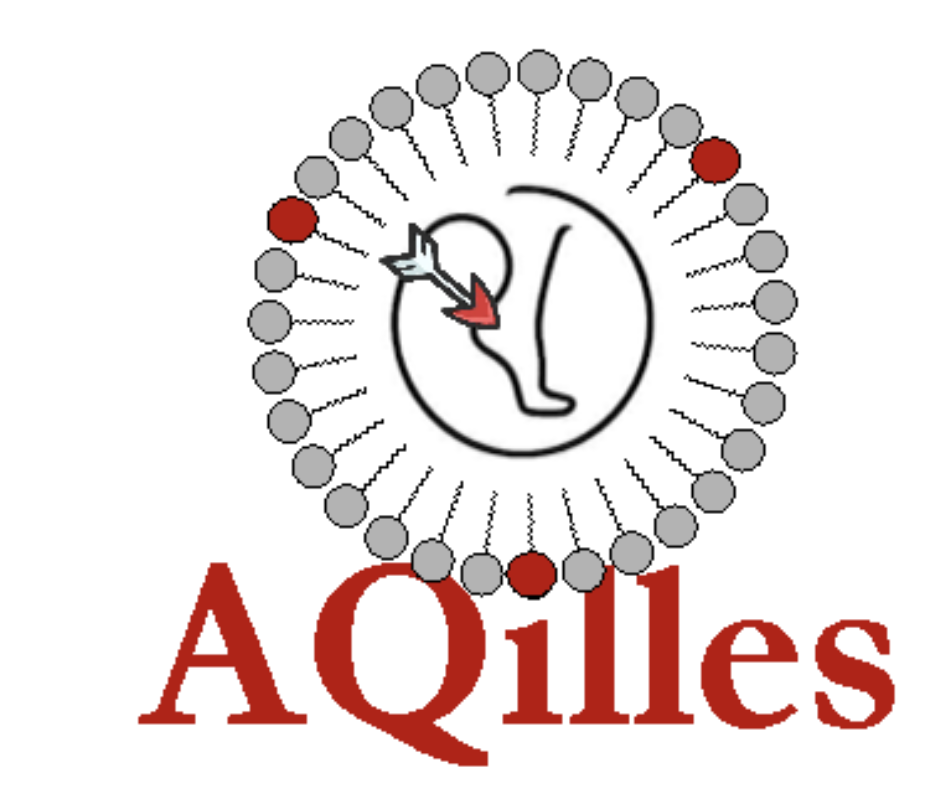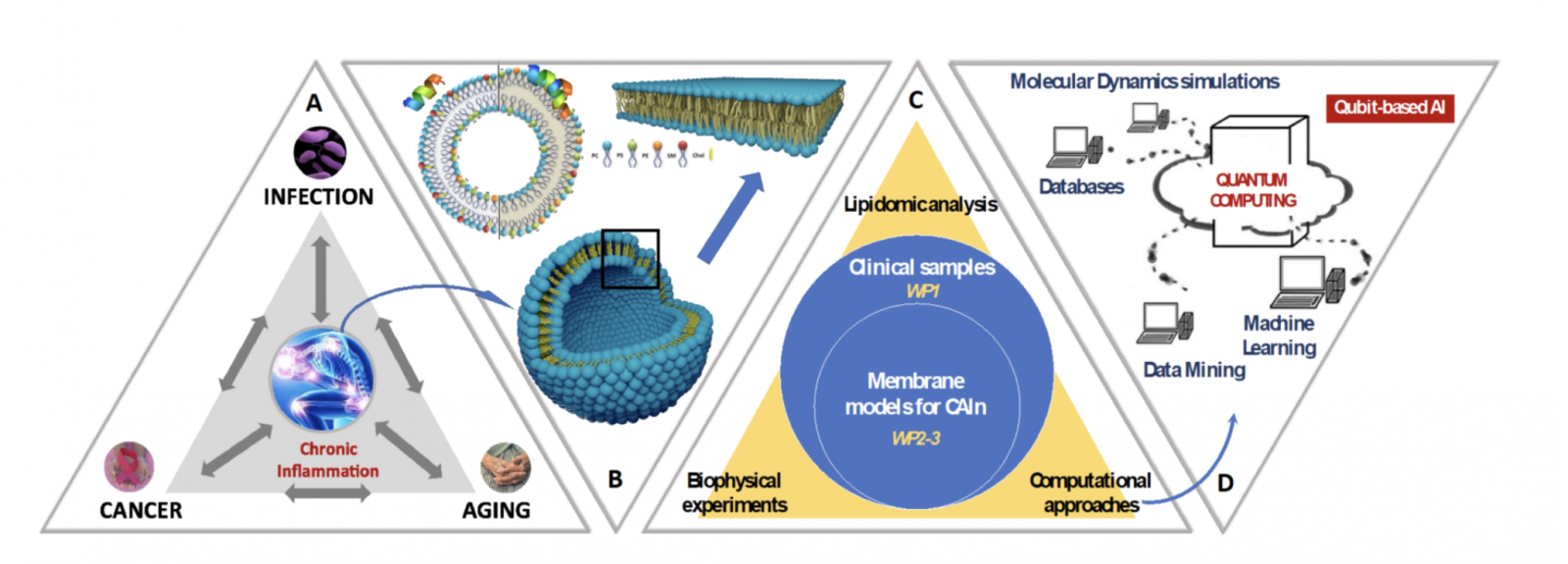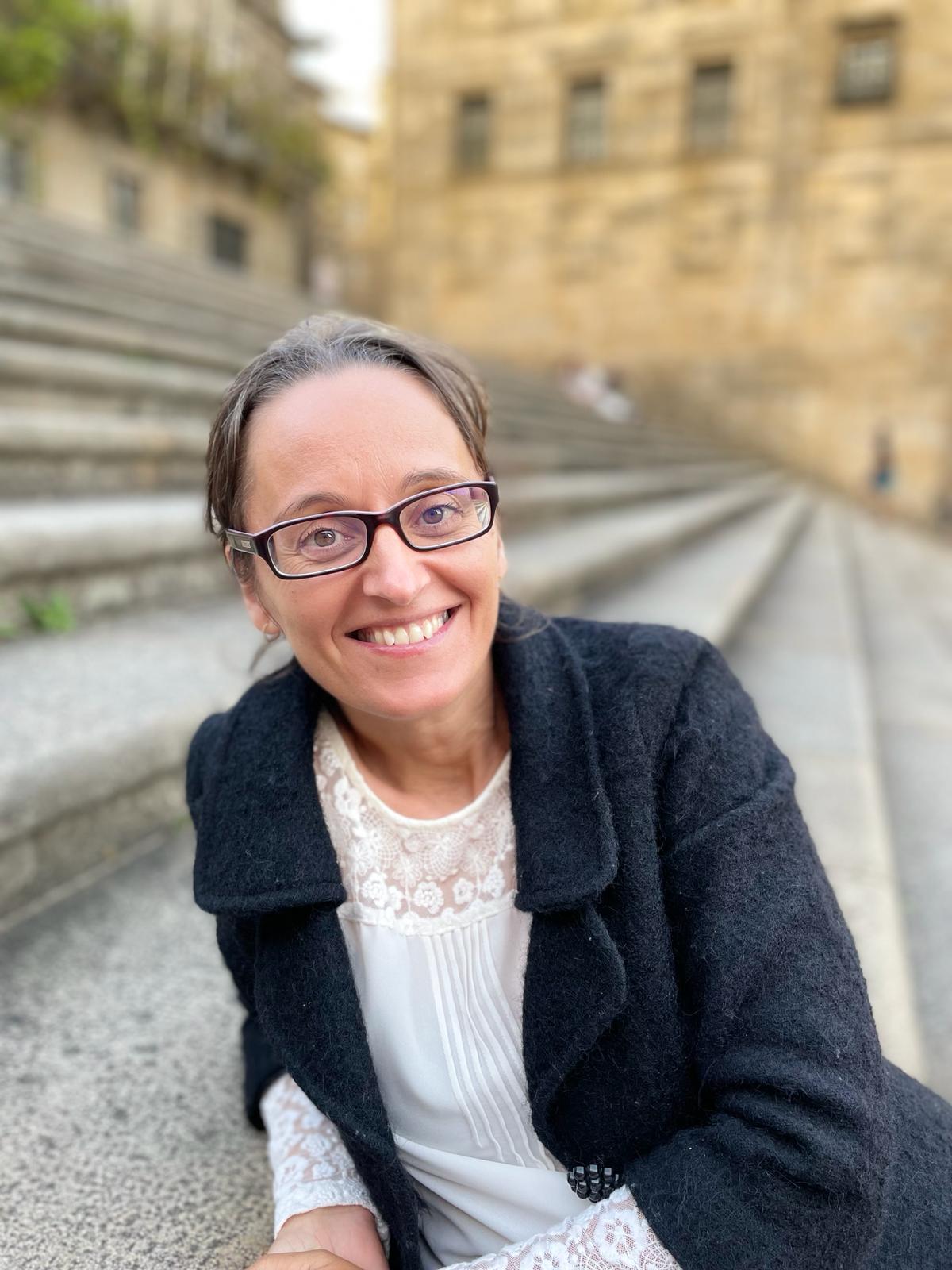By Rebeca García Fandiño, CiQUS Principal Investigator.
The Greek hero Achilles, renowned for his superhuman strength and prowess in battle, was rendered invulnerable by his mother's immersion in the magical waters of the River Styx. However, his heel, the only part left untouched by the protective waters, became his fatal flaw. This enduring myth serves as the inspiration for AQilles, a research project spearheaded by Prof. Rebeca García Fandiño at the Center for Research in Biological Chemistry and Molecular Materials (CiQUS) in Santiago de Compostela, Spain.
AQilles brings together an interdisciplinary team of physicists and chemists dedicated to uncovering and exploiting the vulnerabilities of cells affected by cancer, aging, and infection. To achieve this ambitious goal, the project employs cutting-edge tools of computational simulation, artificial intelligence (AI), and quantum computing.
The CAIn Triangle: Unveiling Interconnected Vulnerabilities
Cancer, aging, and infection have long been considered distinct entities, leading to fragmented and disjointed understanding of these complex biological processes. However, mounting evidence suggests a far more intricate interplay between these three conditions, revealing numerous connections that form the vertices of what we term the "Cancer-Aging-Infection triangle" (CAIn triangle). Beyond the chronic inflammation common to all three, a previously overlooked common thread emerges: the composition of cell membranes in affected cells.
Cell membranes, once regarded as mere barriers, have gained prominence in recent years thanks to advancements in lipidomics, a field that analyzes the vast array of lipids constituting these cellular envelopes. Studies have shown that when a cell succumbs to cancer, infection, or the aging process, significant alterations occur in the lipid composition of its membrane. These alterations, in turn, affect the mechanical and chemical properties of cell membranes, distinguishing them from their healthy counterparts.

The AQilles project harnesses the power of lipidomics to decipher the molecular signatures of cells affected by cancer, aging, and infection. By meticulously analyzing the intricate composition of cell membranes, researchers can identify unique lipid profiles that serve as hallmarks of these conditions. These lipid profiles hold immense potential for diagnostic applications, offering early detection and disease monitoring capabilities.
The role of technology in AQilles
Using computational technologies of molecular simulation and artificial intelligence (AI), the AQilles project aims to identify lipid profiles of the CAIn triangle that can be used as diagnostic markers of health and as a basis for the design of preventive and therapeutic tools.
Originally named Akilles (from the word 'kill'), the project has evolved into AQilles to emphasise the inclusion of quantum technology (represented by the 'Q'). This subtle but significant change reflects the project's ambition to use the new quantum computer at the Centro de Supercomputación de Galicia (CESGA) to advance scientific discovery. While still in its nascent stages, quantum computing holds immense promise for revolutionizing data analysis, particularly in the realm of complex biological systems. In an innovative approach, quantum computing is being considered to train an artificial neural network using cubits as artificial neurons.
The AQilles project explores the potential of quantum computing to tackle the intricacies of lipidomics data. By harnessing the unique computational capabilities of quantum computers, researchers aim to uncover hidden patterns and correlations that elude conventional computational methods. This groundbreaking approach could lead to the identification of novel therapeutic targets and the development of more effective treatments for cancer, aging, and infection.

Using molecular simulation and AI powered by quantum computing, the AQilles project aims to create and analyse complex datasets to identify clusters of lipid species associated with cancer, infection and ageing. The aim is not only to unravel the complexity of these conditions, but also to lay the foundations for future advances in their treatment and prevention.
Originally published in GCiencia

Rebeca García Fandiño, CiQUS Principal Investigator


